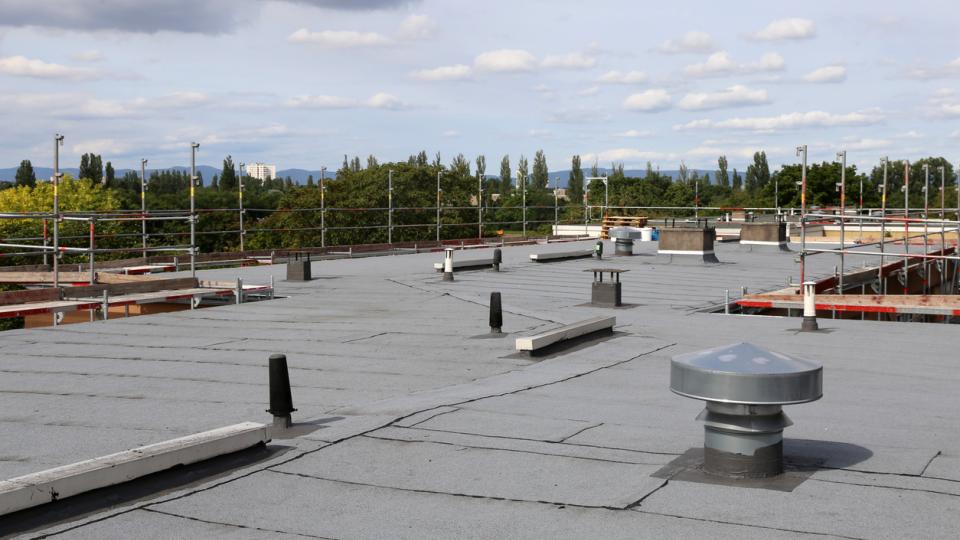When it comes to commercial roofing, business owners and property managers must decide between flat and pitched roofing systems. Each option offers distinct advantages and potential drawbacks, depending on the type of business, climate, and long-term maintenance goals. Here’s a comparison to help you choose the best roofing option for your commercial property.
Flat Roofing
Flat roofs are a common choice for commercial buildings, especially in urban areas. They provide a modern look and maximize usable space.
Pros:
- Cost-Effective Installation: Flat roofs require fewer materials and less labor, making them a more budget-friendly option.
- Additional Usable Space: Flat roofs can be used for HVAC units, solar panels, or even rooftop gardens.
- Easier Access for Maintenance: Inspections, repairs, and installations are simpler due to the flat surface.
Cons:
- Drainage Issues: Flat roofs are prone to water pooling, which can lead to leaks and structural damage if not properly maintained.
- Shorter Lifespan: They typically require more frequent maintenance and have a shorter lifespan compared to pitched roofs.
- Potential for Heavy Snow Load: In areas with heavy snowfall, flat roofs may struggle to support accumulated weight.
Pitched Roofing
Pitched roofs, featuring a sloped design, are common in commercial buildings such as hotels, churches, and retail spaces.
Pros:
- Better Drainage: Water and snow runoff more efficiently, reducing the risk of leaks and water damage.
- Longer Lifespan: Pitched roofs typically last longer than flat roofs due to their durable design.
- Aesthetic Appeal: A pitched roof can enhance curb appeal and complement architectural styles.
Cons:
- Higher Initial Cost: Installation is more expensive due to increased material and labor costs.
- Limited Usable Space: Unlike flat roofs, sloped surfaces don’t allow for additional storage or rooftop installations.
- More Complex Repairs: Repairs and maintenance require specialized equipment and can be more costly.
Choosing the Right Roof for Your Business
When deciding between flat and pitched roofing, consider the following:
- Building Type and Location: Flat roofs work well for industrial buildings, while pitched roofs are ideal for high-end commercial properties.
- Budget: If upfront cost is a concern, flat roofs are more affordable, but pitched roofs may save money in long-term maintenance.
- Weather Conditions: Pitched roofs perform better in areas with heavy rainfall or snow, while flat roofs are suitable for milder climates.
Final Thoughts
Both flat and pitched roofing have their advantages. The best choice depends on the specific needs of your business, climate considerations, and maintenance capabilities.
For expert commercial roofing services, visit TrustDALE Commercial Solutions.

